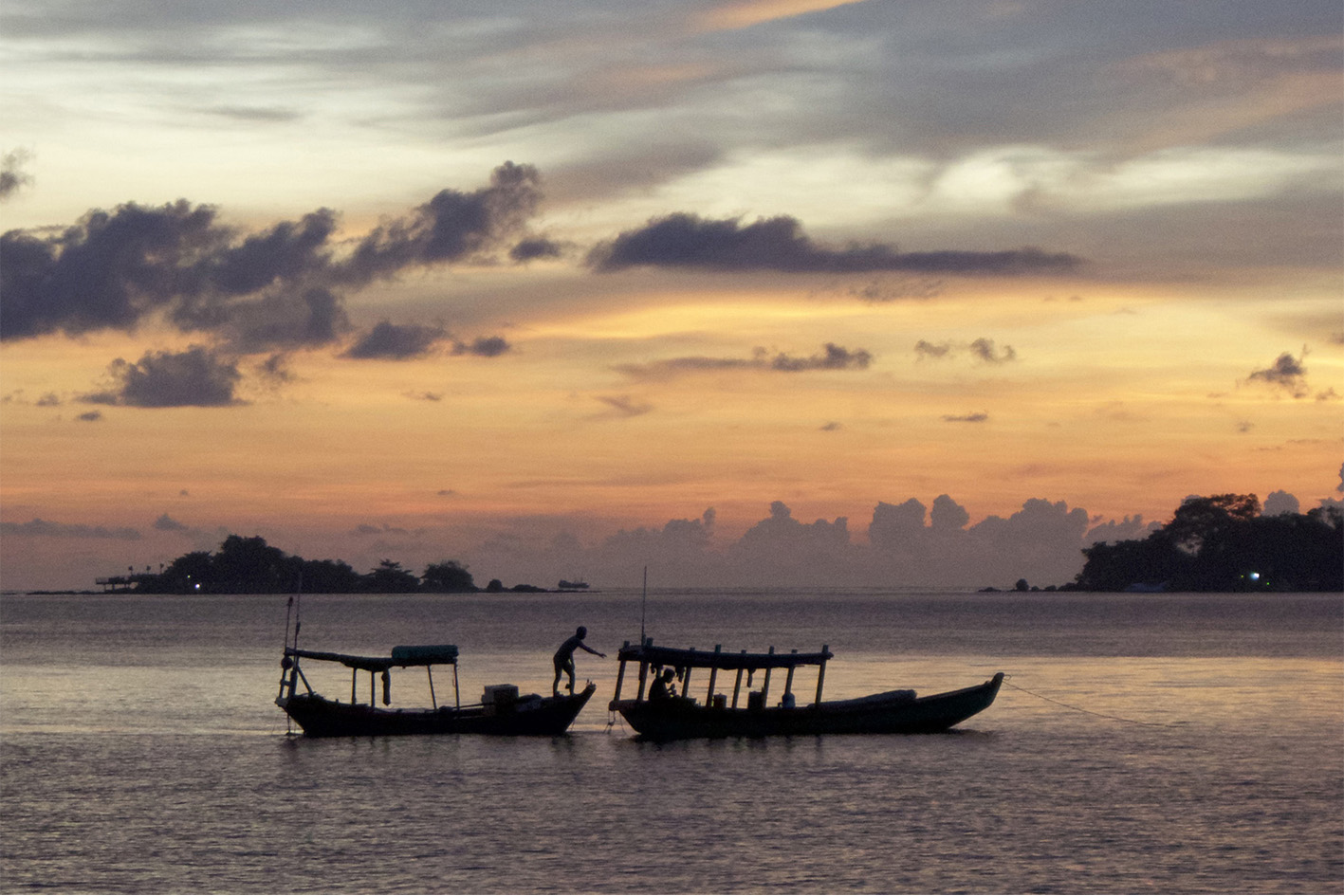
25 Dec Past perfect, future forward
ROBB REPORT THAILAND | By Ellen Boonstra
Only a 90-minute flight from Bangkok, Phu Quoc – Vietnam’s largest island – sits pretty off its southern coast. Almost half of the island’s 600 sq km is given over to a national park, which ensures that this is a place where conservation still trumps commerce and where there’s plenty of room to explore the wild side. Since Thai nationals don’t need a visa for Vietnam, there’s also no red tape to unravel and you can make a last-minute decision to head here for some tropical relief on the weekend, particularly since Bangkok Airways offers twice-daily non-stop flights between Bangkok and Phu Quoc, departing Suvarnbhumi at 11.30am and 4.45pm.
And what better way to reconnect with oneself than by spending a couple of days at Fusion Resort Phu Quoc, with its scenic location on the northeastern tip and quiet side of the island. En route to my temporary abode, I notice that the scenery and shophouses bear a remarkable resemblance to southern Thailand hotspots like Phuket. At the same time, I see road signs in Vietnamese and red flags with gold stars that someone in my group jokes have been hastily planted for our benefit to complete the illusion. But as the bus drives deeper into the lush countryside, we spot pepper farms and fieldworkers sporting conical farmer’s hats that remind us we are indeed circumnavigating a floating outpost of Vietnam.
Arriving at Fusion Resort Phu Quoc, it’s apparent that this high-end retreat is bound to fulfil every last desire from a beachgoer’s wish list: thatched bungalows with all the amenities, a circular pool surrounded by sun-loungers and a gorgeous beach, punctuated by palm trees, with sand as soft as baby powder.
Yet the resort is a wellness retreat too. Guests can opt for a variety of packages, running from three to seven days, or choose from an a la carte menu of spa treatments. For each room night, two of these treatments are included for free. The options are mindboggling: everything from tai chi to meditation classes to personal trainer sessions, yoga, pedicures, massages and Cucumber Heel Therapy for those well-trodden parts of the feet. I opt for the signature Natural Living Pepper Treatment, which repurposes the island’s staple crop into a warm lube for a soothing Swedish- style massage that works the crimps out of city-stiff muscles and gets the body’s grid of energy lines flowing and humming again with renewed vitality.
For cuisine, beach restaurant menus are anchored by seafood. In this respect, the island of Phu Quoc is no exception. One mainstay of the restaurant scene is The Spice House at Cassia Cottage in Phu Quoc’s old town. Here, the menu navigates the boundary lines between Vietnamese cookery and specialities from the Mediterranean, served near the beach with a side order of satin-soft breezes and peppered with spices from local plantations.
To ward off a case of cabin fever or beach-induced lethargy, the island has adrenalised activities like cycling and Jeep tours. The former wend their way through some of the island’s largely unsullied topography, while the latter pivot on war relics that have been pressed into civilian duty for tours. These outings in vintage army vehicles include stops for hikes up to a waterfall, lunch in a fishing village and a chance to soak up plenty of marine scenes. One of the most popular stops is Coconut island Prison. Built by French colonialists to quell the country’s independence movement, the prison was rebuilt in the early Vietnam War era, when it housed communist troops from the north. At its most overcrowded, the prison population swelled to 40,000. Through dioramas, visitors can see how harsh the conditions were and, more positively, gain a better understanding of how indomitable the Vietnamese spirit is – fending off the imperial aggressions of two major powers.
Phu Quoc has some other draws too, like guided tours in English of a remote bee farm, where some of nature’s greatest pollinators are duly feted, and the night market in town. Half of the stalls are given over to seafood, from crabs and grilled scallops to deep-fried shrimp, steamed squid and grilled sea snails. It’s the kind of nocturnal experience – such a quintessential part of the beach getaway in Southeast Asia – that makes Phu Quoc seem like both a throwback to traditional island vacations and a more progressive place that is forecasting the future of wellness retreats and ecological conservation.
Published:
www.robbreport.in.th/2019/11/21/past-perfect-future-forward



